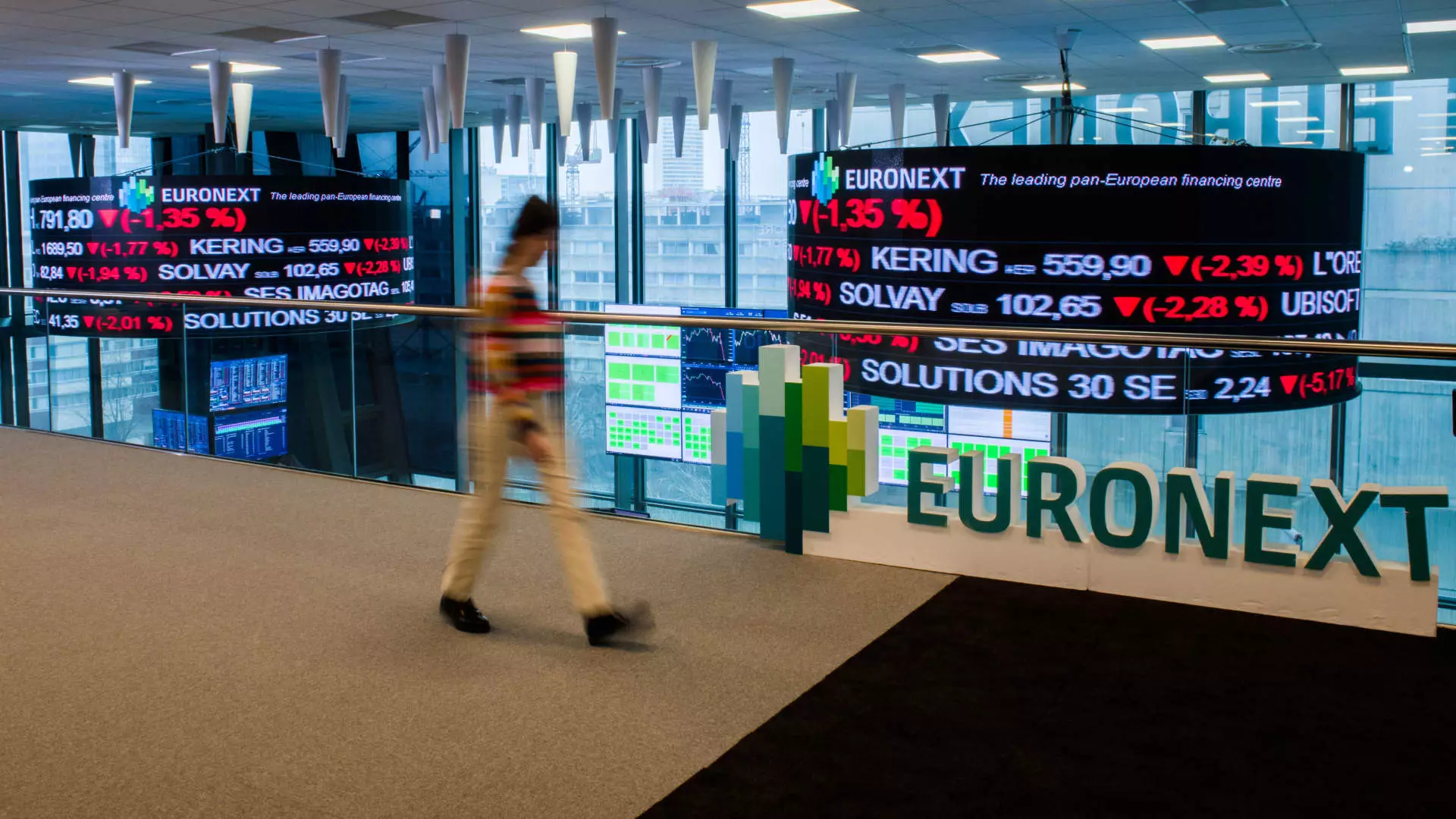The recent victory of Donald Trump in the U.S. elections has sent ripples through global financial markets, particularly affecting international equities. Despite U.S. markets celebrating record highs, funds tracking global stocks listed in the U.S. saw a notable pullback. Investors are beginning to grapple with the looming implications of Trump’s proposed trade policies, which could potentially undermine foreign markets reliant on exports to the U.S. This divergence in market performance raises critical questions about the interconnectedness of global economies and the volatility poised by political developments.
At the heart of this market reaction lies uncertainty surrounding Trump’s plans for tariffs, including a 20% tax on all imports and an astronomical 60% on goods imported from China. These proposals have created a stir in the investment community, with observers expressing concern over their potential impact on global trade dynamics. According to Yung-Yu Ma, chief investment officer at BMO Wealth Management, the uncertainty stemming from these policies can significantly restrict the upside potential for global stocks in the near term. Consequently, even though the U.S. market may seem robust, the shadows cast by policy changes threaten to limit growth prospects outside of America.
Disparities Between U.S. and International Markets
The stark contrast between the performance of U.S. and international markets became increasingly evident in the wake of the election results. As the Dow Jones Industrial Average surged, European markets faltered, grappling with the reality of Trump’s victory. The iShares Core MSCI Europe ETF experienced a decline of over 2%, underscoring the trepidation among European investors. Meanwhile, Asian markets exhibited mixed results, with Japan’s Nikkei 225 showing resilience in the face of broader declines, signifying varying levels of market confidence across the region.
Compounding these challenges, emerging markets have particularly struggled to maintain traction. With the iShares MSCI Emerging Markets ETF falling more than 1%, it is apparent that these financial landscapes are heavily influenced by fluctuations in the U.S. market and the resulting dollar strength. The ICE U.S. Dollar Index reaching its highest level since July signals greater pressure on currencies worldwide, further complicating the situation for vulnerable international economies.
In spite of the broader negative sentiment, there were pockets of brightness. For instance, the Global X MSCI Argentina ETF saw remarkable gains, climbing over 2% to reach a new 52-week high following the election of libertarian president Javier Milei, who has drawn comparisons to Trump. This suggests that localized political changes can lead to unique opportunities for international investors, even amid widespread market uncertainty.
As the financial community continues to digest the implications of a Trump presidency, it remains imperative to monitor potential shifts in global trade policies and international relations. While the U.S. markets may thrive in isolation, the ramifications for foreign equities and international economic stability could paint a more complex picture. Investors would be wise to brace themselves for volatility, factoring in the intricacies of global interdependencies and remaining vigilant regarding the evolving landscape of U.S. foreign policy.

